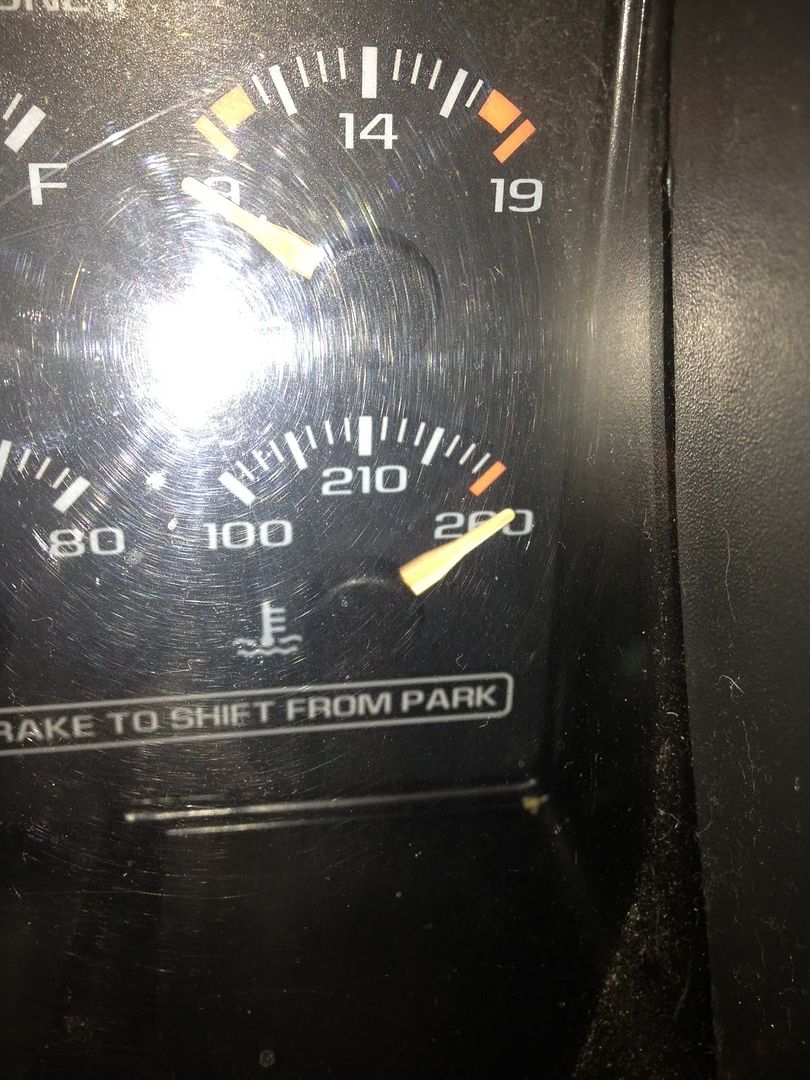Originally Posted by Dominic Toretto

Tell me how functional it is, when you can't tell if you are overheating. -Alex
|
Originally Posted by Dominic Toretto

Tell me how functional it is, when you can't tell if you are overheating. The water temp reaches the "normal" position in about 1 minute. That's unrealistic unless regular operating temp is around 160F and never moves from that position in stop-and-go traffic, parked, or any other situation in which you know your temp is changing. The oil pressure should change as rpms change. It stays exactly the same no matter if you are idling or redlining. Voltmeter doesn't really matter.
-Alex
|
Are you aware how the thermostat and fan control works to maintain a fairly constant temp?
Here's a pretty good example of an overheating engine:

The boy didn't notice anything wrong until the idiot light came on. Had he done so, he could have pulled over to check it out, and would have noticed that the radiator split and was puking coolant out at a tremendous rate.
Originally Posted by Dominic Toretto

... The oil pressure should change as rpms change. It stays exactly the same no matter if you are idling or redlining...
-Alex
|
Sort of. Once the oil pressure gets up to the relief setting, it bypasses rest from there it will be essentially the same pressure.
Same pickup in the overheat picture is an older chevy. With 200K miles on the clock, it doesn't maintain solid oil pressure. When fully warmed up, it doesn't maintain "normal" oil pressure at idle and very low rpms. Obviously the clearance in the bearings and such have opened up somewhat and/or the oil pump doesn't put out the same volume it used to and/or the relief spring has softened up slightly. Its not so bad that I'm going to rebuild it, but I'm not planning on getting another 200K miles.
Originally Posted by Dominic Toretto

... Voltmeter doesn't really matter.
-Alex
|
it sure does when the alternator quits putting out a sufficient charge. I'd sure like to have a gauge to warn me that I'm fixing to have a problem.